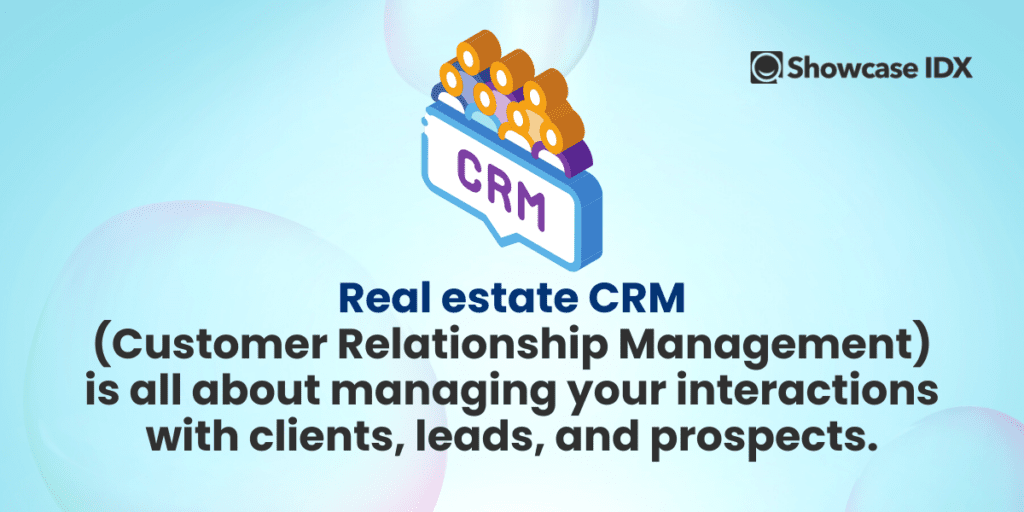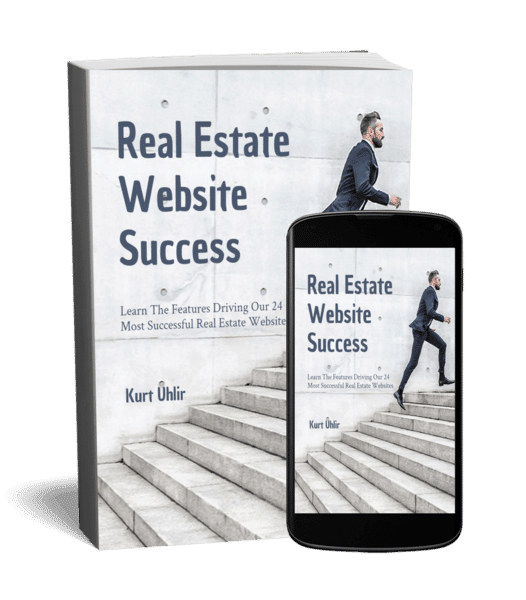Becoming a real estate agent is an exciting and potentially lucrative prospect. You’ve likely noticed that some real estates seem much more successful than others. What makes them more successful?
If you’re thinking of becoming an agent or recently became one, it’s best to prepare. With your business goals and strategies in mind, you’ll have a much better chance of success. Below are some of the best new real estate agent tips to help you lay the foundation for a successful career.
What Real Estate Agents Do

Real estate agents assist people in buying and selling properties, including homes, commercial spaces, and land. Agents keep up with current trends, including mortgage rates and real estate market values, and help them make decisions. They also take their clients through the entire buying and selling experience.
Agents research properties for their clients and show them properties. They often have to work around their clients’ schedules, meaning they tend to work evenings and weekends. Once a seller decides on a property, real estate agents draw up contracts and other paperwork.
Real estate professionals are also excellent marketers. They promote themselves and the properties they list through social media, websites, and print media.
23 Critical Tips New Real Estate Agents Need to Find Success
Below are some of the best new real estate agent tips to help you get your business off to a great start.
1. Top-Notch Communication Skills Are a Priority
Almost every career requires communication skills, which can be one of your most significant assets as a realtor. You’ll spend much of your day interacting with clients, other agents, and more. A good agent is more than pleasant – they’re able to present properties in a positive light, gain trust, and negotiate.
You can improve your skills even if you aren’t the best at communicating. If you stumble over words, rehearse what you want to say before meeting with clients. Visit a house and make notes before showing it. You can also practice with a coworker.
Your nonverbal behavior is also essential. And here’s one of the best new real estate agent tips: Be sure to smile and offer a handshake when you meet new people. Stand up straight and keep your posture open. You want to appear personable and trustworthy.
2. Your Branding and Marketing Matter
While you may think brands are only important for big real estate companies, your brand represents you and your business. A solid brand helps you to build a representation and allows people to recognize you. People are much more likely to remember a brand than a name.

Spend some time developing your brand. Think about your work and how you want to be perceived. What makes you stand out as a real estate agent? Use that to establish your brand and real estate business. You should think of yourself as an agent and a business person.
Marketing helps you get your brand out into the world. It’s crucial that your marketing and brand reflect and complement one another.
3. Create a Solid Marketing Plan
Before formulating a marketing plan, figure out your target audience. Who are you trying to sell to? Where can you reach them? The types of properties you sell can help you figure this out.
Next, you need to choose your channels and develop content. Your content will depend on your target audience and your marketing channels. For example, you wouldn’t create similar content for clients looking for a luxury home and those looking for a starter home. Your content also won’t look the same on YouTube and Facebook.
When developing your website, follow SEO best practices so people can find you. Keep your website simple, attractive, and functional. Have a clear call to action. Don’t overwhelm visitors with too many options.
4. Maximize Each Lead
A lead is someone who expresses an interest in getting your help buying or selling a house. You may find leads through your website, phone calls, emails, open houses, referrals, and more. While you don’t want to be so aggressive that you annoy your leads, you do have to be persistent if you want them to work with you.
Buying or selling a house is a big decision, so you’ll need to continue to follow up with your leads over several months. Dedicate time to assessing each lead to see if they’re a good fit for the properties you offer. You’ll want to put more effort into the leads most likely to commit.
Having a CRM (Customer Relationship Management) system is helpful. It can help you turn leads into clients. You’ll be able to keep up with all your leads’ information and keep a record of who you’ve spoken with and when.
5. Stay Laser-Focused on Your Niche
It can be tempting to cast a wide net when you’re just getting started in real estate. It seems like trying to work with everyone to increase your sales potential would make sense. However, the opposite is true. When you focus on one niche, you can become an expert. You’re also less likely to get overwhelmed.

When clients hire an agent, they want something other than a generalist. They want an expert. Clients are more likely to trust someone who knows their niche in the tiniest detail.
Sticking to one niche may seem counterintuitive, as you’ll likely get fewer leads. Fewer leads aren’t bad, though, because the leads you get will be primed to work with you. They’ll see you as knowledgeable.
6. Identify Your Unique Value Proposition (UVP)
Your unique value proposition, also known as a unique selling proposition, is a clear statement about what services you provide and what sets you apart from other agents. You should start by researching other successful agents in your area to see what they’re doing. Next, figure out how you can improve on what they do.
Come up with concrete offerings in your value proposition. Don’t say something like “dedicated.” Instead, give examples of how many properties you’ve sold. As time goes on and you learn more about the clients in your area, you can modify your UVP to make it even more relevant and effective.
You also need to develop metrics to measure your success. You should see how many emails or calls you get based on a certain UVP. Try A/B testing to see which value statements are gaining the most traction.
7. Establish a Budget for Marketing
If you don’t establish a marketing budget, you may spend more money and get fewer results. Start with a realistic amount that you can spend. You can always increase your budget once you start making sales.
Next, come up with a marketing plan. Start small and focus on one or two channels. Analyze your target audience and determine what type of marketing is most likely to reach them. Put your energy into making a fantastic but small marketing campaign. You can continually expand as you grow.
Be sure to spend time planning out your content as well. There are plenty of resources available to help you easily create professional-looking content. Potential clients will trust you more if they take your content seriously. Remember to check out what your competition is doing – you can get some ideas of what to do and what not to do.
8. Find the Right Brokerage for You
Many new real estate agents make the mistake of joining the first real estate brokerage they find. While you’re still responsible for most of your day-to-day work, the real estate brokerage you choose makes a difference. You must find one that’s a good fit for you.

Take some time to research potential brokerages. Meet with others who work there and try to contact agents that used to work there. Be sure the brokers align with your values and goals so that you’ll get the support you need. You also want to ensure that you choose a brokerage that’s NAR-affiliated.
9. Build a Great Website
A well-designed website is an essential component of real estate business. Many sites online will allow you to make a professional-looking website even if you have yet to gain coding experience. You also have the option of hiring a web developer.

Visitors to your site will likely be there to see your most current listings. Updating your site to keep up with those changes is far too time-consuming, so you’ll want to include an IDX for automatic updates. An IDX (Internet Data Exchange) connects your site with the MLS, allowing your site to have the most current listings. Guests can see all listings without leaving your site.
Be sure that your site is optimized for Google search so that people can find you when searching for relevant keywords. Don’t forget about local SEO since you’re targeting people in your area. Writing a blog, and updating it with blog posts frequently, can provide your clients with valuable buying/selling tips and will also help people find you through search engines.
10. Your Scripts Should Be Flawless
Most people aren’t flawless speakers. You’re likely to get tongue-tied and nervous, especially when starting your career as an agent. You certainly don’t want that to happen when meeting with a client. You want to appear knowledgeable and likable. Even if you have the knowledge, a client is less likely to trust you if you bumble over your words.
A script is key to getting your words out clearly. Take the time to write a script and practice it. Try to review your script daily, especially before meeting with clients. After a meeting, analyze your script and edit it if needed.
You want to come across as confident, comfortable, and personable. Don’t just list facts or steps. Instead, take the time to tell a story. Stories and emotional appeals will always resonate more with people than dry informational material.
11. Be a Master at Presenting
Your presentation is essential. While you’ll likely have some things you say to almost every client, try to tailor your presentations to each client. People can quickly tell when a sales pitch is something you repeat to everyone. You want your clients to understand that you care about their needs.
When you give clients information on a listing, you can also use that to educate them on the buying and selling process so they’ll know what to expect.
Keep working on your presentations, fine-tuning them every time. Practice on your own and with a friend or colleague. When you’re well-prepared, you’ll be able to move past your nerves and come across as a confident agent.
12. Improve Your Contract Analysis Skills

Showing properties and helping clients find their dream home is the fun part of being a real estate professional. Contracts, however, are less fun but are just as important. Many people find contracts intimidating, so as their agent, it’s your job to understand all the components of any contract you use.
You need to be able to guide your clients through a contract and explain everything in everyday language. Be prepared to answer any questions they may have. Clients who are uncomfortable with a contract will be less likely to sign.
Even if you feel comfortable with a type of contract, it’s always a good idea to read over individual contracts before meeting with a client. You don’t want to be caught unawares.
13. Dress for Success
What you wear matters. Your clothes help project your values and personality to the outside world, and people often quickly assess you based on what you’re wearing. If you want potential buyers and sellers to see you as a professional, you must dress professionally.
Wearing professional clothes also gives you confidence. Your actions often align with what you wear, so the right clothes can help you be a more competent seller.
Your clothes also help to build your brand. Choose the appropriate clothing styles to complement your brand and niche. Think about your target audience and the image you want to convey on a consistent basis.
14. Be a Social Media Savant

Almost all businesses and people, including potential clients, are on social media. People may even find it strange if an agent lacks social media presence. If you need to become more familiar with social media, you need to take some time to learn the ins and outs of the major channels.
Be sure to focus on the social media platforms most likely to reach your target audience. Your social media presence should help to build your brand.
Be thoughtful about content. While you want to post listings, you should also post other content to keep your followers engaged. Ask questions, share real estate agent tips, and blog posts, and share industry articles that are interesting and helpful. Try to follow a regular posting schedule.
15. Get on the Phone
A simple phone call is still a great way to generate leads. You need to set aside time in your daily schedule to make phone calls. Keep a call list and aim to make a certain number of calls each day.
Be sure to practice your script before making a phone call. Some clients may be less receptive to talking on the phone, but if you’re personable, they’ll be more likely to speak to you. Never be pushy, and always be polite. Your leads will appreciate it.
Remember that the more phone calls you make, the better your chances of making a sale. Even cold calling has its merits. Update your list daily so that you’re always making the most urgent calls.
16. Treat Each Deal and Transaction Like It Was Your Own

Above all else, your clients want to feel like you understand and care about their needs. Buying or selling a house is a significant life decision, so they want to feel like they’re working with someone who’ll put them first.
As you’re considering options and preparing to advise your clients, think of each decision as if it was your own. Never advise your client to do something you wouldn’t do for yourself.
You can give clients your best by getting to know their needs from the beginning. Ask a lot of questions. Be willing to wait until your client finds what they want. Don’t try to talk them into something that isn’t right for them. It’s okay to say no if it isn’t a good fit.
17. Track and Measure
It’s no longer enough to assume that your business is doing well. Collecting and analyzing data is the only way to ensure that you get the desired results. You can collect data on just about every aspect of your business. You can see how your website and social media perform, track your listing’s success, and more.
You don’t have to check everything but decide on your key performance indicators (KPIs) so that you can see what’s working and what isn’t. It would help if you focus on a couple of KPIs and then shift to others as you improve.
You should keep up with your profit and loss margins, as those are often the bottom line. You can then figure out what KPIs are affecting those margins. Your metrics may also help you figure out ways to reduce costs and become more efficient. Finally, remember to set up a separate bank account for your business to keep up with these metrics easily.
18. Manage Your Contacts
It’s vital to keep all of your contacts organized. This includes leads, clients, other agents, and anyone else you may work with. Randomly saving emails and numbers in your phone can detract from your workflow, as you may spend a lot of time trying to find the exact person you need.
When you set up your CRM, you’ll be able to keep all this information organized. You can keep up with contact information and include notes about what people do and anything else you need to remember about them. Update your notes each time you speak with one of your contacts.
As a real estate agent, your business depends on networking and making connections. You’ll be able to maintain these connections and expand your network if you keep well-organized records.
19. Focus on What Matters
The world of real estate is a fast-paced and often high-stress job. It can be easy to get overwhelmed, especially when you have too much to focus on. If you’re going to be successful, you must manage all of it. You can start by focusing on what matters most.
Your real estate clients should always come first. While things may seem stressful, your clients can also easily get overwhelmed. It’s your job to alleviate the stress as much as possible. Use facts and logic to help prevent them from letting their emotions guide them too much.
Remember to stay professional. Do your research and keep up with the trends to be well-informed and ready to answer your clients’ questions. By staying prepared, you’ll be able to manage your stress and theirs.
20. Pick the Right CRM for Your Needs

You’ll want to choose a CRM early in your career. Managing leads and contacts is essential to your success, and the right CRM will go a long way in helping you keep things organized and easily accessible.
If you’re new to working with CRM software, you’ll want to start with one that is user-friendly and has a manageable learning curve. You should also pick one that allows you to upgrade to more features as you go. As you get comfortable using a CRM, you’ll likely see more uses that you want to add.
If you use other software, choose a CRM that integrates well with other programs. Your workflow will be much smoother if everything works together.
21. Seek a Mentor
A real estate mentor (also called real estate coach) can be an invaluable resource as you begin a real estate career. If you can work with a real estate expert with several years of experience, they can likely help you in almost any situation.
A mentor can give you advice about how to market your listings, how to present, and how to close a deal. You can learn from how they’ve grown their own business. They can also answer any questions you may have if you run into a roadblock. Finally, they also encourage. It’s helpful to see someone who’s been where you are and has achieved success.
To find a mentor, you may be able to connect with someone at your brokerage. You can also network at different community events to find mentor agents. If your area has a real estate agent association, be sure to join.
22. Have the Right Mindset When Prospecting
While your bottom line is earning commissions and growing your business, if that’s your only focus, you’re less likely to be successful. Instead, you should focus on building relationships with clients, future clients, and others in your industry. These connections will lead to more sales and help when you need it.
You should always consider how you can add value instead of trying to increase your profits. Remember that buying a house is an important, often life-changing decision for your clients. Their concern lies with their family. They will be more likely to work with you if they feel like you share that concern.
When you’re putting your best efforts into your work, commission checks are likely to follow. You’ll be surprised at how your business will grow when you focus on people instead of products.
23. Always Be Improving on Your Skills

Never stop growing. There’s always something new to learn. Even experienced agents must keep themselves up-to-date on the latest trends in the real estate industry. The more you learn, the better you’ll be able to help your clients and answer their questions.
There are several ways to ensure that you are continuously improving. There are continuing education classes that you can take locally or online. You can stay updated on current news and trends in the real estate market.
Remember that you can learn about more than just real estate. You can also expand your business skills by learning marketing, writing, and public speaking.
FAQs Critical Tips New Real Estate Agents Need to Find Success
Do you still have questions about being a new real estate agent looking to succeed in the real estate industry? We have answers!
How do new real estate agents succeed?
New real estate agents follow a few guidelines to help them get their business off the ground. First, they care about their real estate clients and take the time to get to know them and their needs. Second, they keep up with potential and current clients to ensure they’re helping when possible.
New agents also put effort into marketing their business and learning as much about the industry as possible. They aren’t afraid to ask more experienced agents for help if they need help understanding something.
How much do most realtors make in their first year?
According to ZipRecruiter, a first-year real estate agent will make an average of $94,212 for their first year. That number may vary based on where an agent lives.
What should a new real estate agent do in the first 30 days?
Once you have your real estate license, you need to hit the ground running. The first 30 days are a critical time for you to get your real estate business moving forward. You’ll need to join the association of realtors, get a headshot, launch your website, and order business cards as soon as possible.
You should also ensure that you have MLS access. Get an eKey so that you’re ready to start showing. You can use the eKey to tour some homes for sale in your area to prepare yourself.
Finally, come up with a business plan and start marketing. If possible, attend networking and community events.
How do real estate agents survive their first year?
One of the best new real estate agents’ tips is to expect the first year to be challenging. Plan to hustle if you want to be successful as quickly as possible. That often means working longer hours, boosting your marketing efforts, and doing whatever it takes to find and satisfy clients.
What is the biggest challenge for real estate agents?
One of the most significant challenges new real estate agents face is a lack of experience. Clients want to hire an experienced agent, but everyone has to stop somewhere. New agents have to work that much harder to get business.
New agents must push through rejection and continue learning and growing throughout their early months in the real estate industry.
Where can I find a website developer or SEO to help me with my website?
Unless you have web development skills and a solid understanding of SEO, you’ll need a developer and an SEO agency to help you create a stellar website. You must have a professional-looking website, and SEO will help you find clients. Both are well worth the money.
Where can I find examples of great real estate websites?
When planning your website, it can be helpful to look at examples of high quality websites. You’ll get an idea of formats, colors, and MLS integrations that work. Use other websites as inspiration, but remember to customize your site to your particular brand.
Parting Thoughts
Becoming a successful real estate agent is all about mindset. If you genuinely want to help people and are willing and motivated to put in the work, you can grow your business. Following these new real estate agent tips can build a foundation for a successful business.
Showcase IDX can help agents and real estate companies achieve successful outcomes in their real estate endeavors. The WordPress plugin lets you integrate IDX and CRM through your website easily. Prospective clients can easily find your listings, and you can stay organized with an impeccable CRM for your client records.
Sign up for a free ten-day trial and see your business take off.
- Author Details





